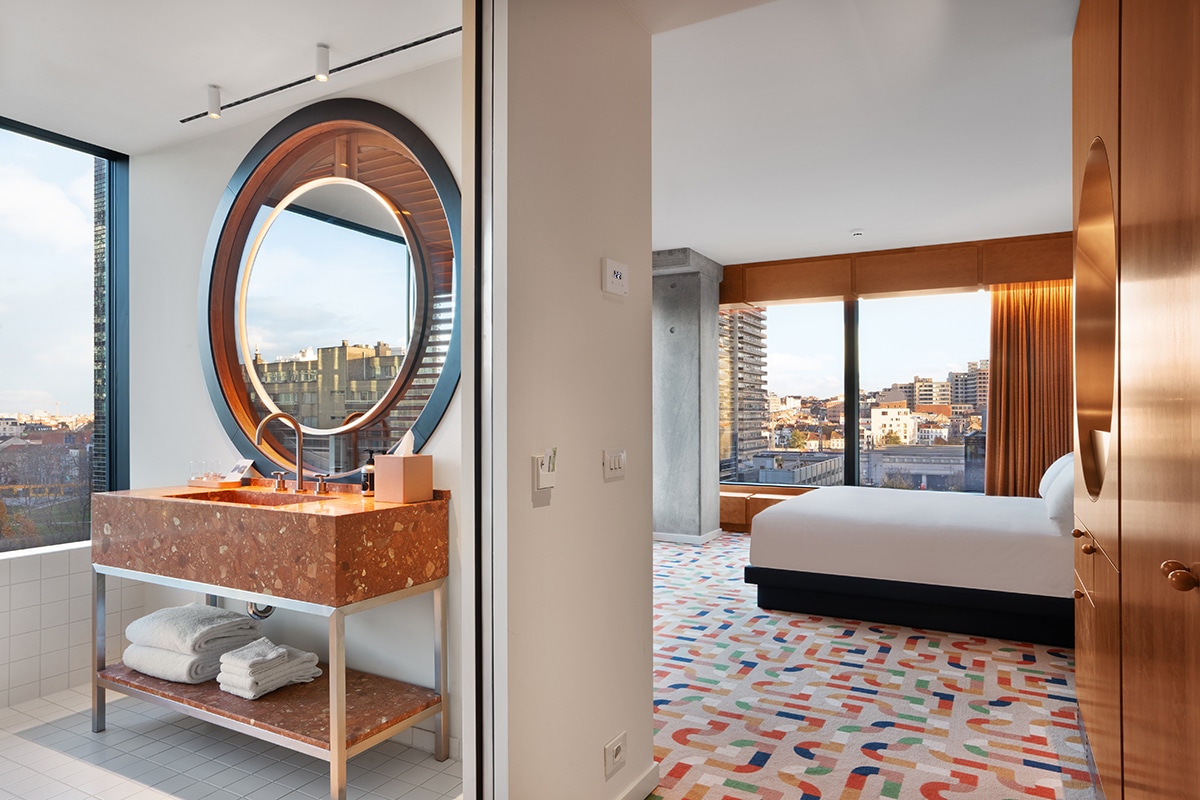
Better hotel experience and greater operational efficiency through digital keys
The hotel sector is an industry in a state of flux when it comes to technology. One of the most notable changes is the switch from traditional keys and badges to digital access solutions. This innovative technology not only impacts the hotel experience of guests, visitors and employees, but also contributes to a safer hotel environment and operational efficiency. In this article, we answer some frequently asked questions on this topic.
How do digital access solutions improve the hotel experience for guests and employees?
The use of digital keys leads to a simpler, faster, easier and more secure check-in and check-out process for hotel guests. Replacing traditional badges with digital keys does away with annoying waiting times at reception while giving guests a greater sense of control over their hotel stay. Another advantage is that the risk of losing or stealing a physical key or badge is reduced to zero. Hotel staff also enjoy numerous benefits: they no longer have to issue or recover badges, and they can easily rebook access if a guest changes a reservation. Finally, there is the sustainability aspect, with fewer plastic badges in circulation.
So access convenience and barrier freedom are undeniably major strengths of new access technology. Consider, for example, a 24/7 offer of access options, including the possibility of opening an outside door at night. Digital keys can be programmed flexibly, with access to hotel room, meeting room, wellness facilities and restaurant. Moreover, hotel staff have a clearer overview of entrances and the number of people in the hotel. There is also no more hassle with lost keys, RFID cards or badges. Moreover, electronic keys and associated access rights can be easily and quickly erased, both for hotel guests and employees. A sick or fired hotel employee? Then update his or her access rights in no time.
Last but not least, digital access solutions allow hotel staff to respond quickly and flexibly to changing circumstances, for example by granting access to a new hotel room when a quality issue arises. This proves how new technology can really boost guests' hotel experience.

What challenges do hotel operators face when implementing digital keys?
Implementing new access technology is not feasible for every hotel operator. This is because small and medium-sized hotels do not have the same budgets as larger hotel chains. Integrating these solutions into the hotel's building management systems can also be a challenge. Here, proper and proactive support from the software supplier and access solution manufacturer is essential.
In any case, investing in licences, software and support services - rather than classic hardware - requires a different mindset from a hotel operator. Do you run a modest hotel and want to invest in self-automated customer service? Then realise that this involves a lot, such as your own website, booking licence, cloud hosting, payment system and extra Wi-Fi bandwidth. The risk of hacking is another issue to monitor closely, although this is at the top of the priority list for all suppliers and manufacturers. Indeed, security is essential in the hotel industry. Ensuring the security of data and people remains a challenge at a time of growing cybercrime on which no compromises are tolerated. Ensuring full coverage in a hotel in wireless applications is also a must, with so-called 'dead zones' and interference from moving equipment being key concerns.
How can digital keys contribute to the security of both hotel guests and employees?
The use of mobile keys allows hotel managers and staff to maintain full control over access and circulation in and around the hotel, with these situations also adjustable in real time. Moreover, digital access systems provide detailed logs, allowing you to track who, where and when in your hotel has accessed different rooms. This traceability can be very useful for security purposes.
Such access control prevents unwanted visitors: by securing the perimeter - for example, an underground car park - you as a hotel operator can only allow your guests access to the specific floor of their reserved hotel room. Even at night, controlled access guarantees an extra safe hotel environment. You can apply digital keys to burglar-proof doors, combined with camera surveillance and ambient lighting.
Still important to mention is the use of multifactor authentication (MFA), along with the possibilities of opening doors via facial recognition. Indeed, under the motto 'open your space with your face', it is possible to grant access to hotel spaces via webcam where using a smartphone or badge is practically a bit more difficult, such as access to a sauna area in a hotel.

What role do smartphones and mobile apps play in the adoption of digital access solutions in the hotel industry?
Experts in the digital access solutions industry note that the use of smartphones and apps for access control and provisioning in hotels is not yet the norm. This will undoubtedly change in the coming years. A shift from physical to digital keys is on the rise. Not only in hotels, by the way, but in other office buildings, shops, hospitals and even private homes.
The adoption rate of smartphones and apps is partly driven by the technical challenges and the accompanying price tag. The many advantages of this way of working - from ease of use and operational efficiency to increased security - make this advance unstoppable. Moreover, the smartphone is increasingly transforming into a badge or key. It is fascinating to see how this device can be transformed into a digital key by special apps and security protocols, allowing users to wirelessly unlock doors and access secure areas with a simple tap or swipe of their screen.
The young generation in particular attaches great importance to an accessible and user-friendly online environment to obtain access codes. Young people prefer speed and ease of use, rather than requesting a badge via a hotel reception desk. Moreover, this technology can be enriched with additional digital services, such as online booking of a shuttle service, taxi or restaurant visit near a hotel.■



